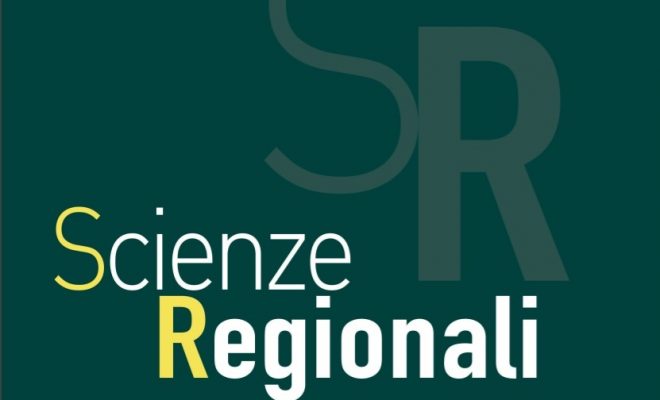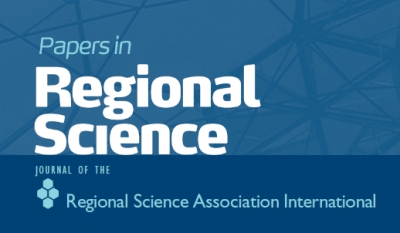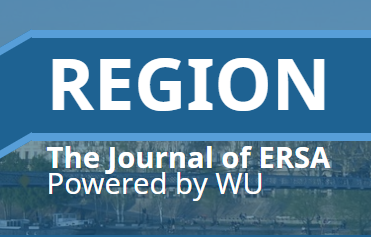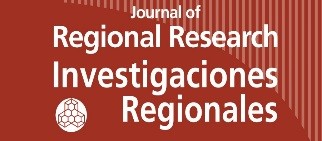This section’s aim is to display ongoing Calls for Submission for Special Issues in Journals relevant to the Regional Science Community.
Ongoing Calls
________________________________________________________________________________________________________________






________________________________________________________________________________________________________________
Posted 25 June 2024
Geoprogress Special Issue
THE JUST TRANSITION FROM A GEOGRAPHICAL PERSPECTIVE
edited by Maria Giuseppina Lucia (Turin University), Monica Maglio (Salerno University), and Francesca Silvia Rota (Turin University)
Proposals should be sent to info@geoprogress.eu and mariagiuseppina.lucia@unito.it by the following deadlines:
- July 15th, 2024 Abstract in English or Italian (max 2500 characters) with 3 keywords
- July 30th, 2024 Abstracts results announcement.
- October 30th, 2024: Articles (maximum 7200 words or 20 pages)
GeoProgress Journal is an online open-access international peer-reviewed journal of development studies. It is included in the ANVUR list of Class-A journals (ASN 2023-2025) for the 11/B1 sector.
Submitted manuscripts should not have been published previously, nor be under consideration for publication elsewhere (except conference proceedings papers); they should be well formatted and use correct English (or Spanish or French).
CALL
The public and policy debate on sustainable development frequently refers to the need for a global just transition that is just for people and citizens, companies and sectors, cities and regions. Just transition is considered as a highly attractive promising economic model, part of the new narrative of inclusive growth story (Global Commission on the Economy and Climate, 2018). The complexity of the topic explains the number of specialized studies, the plurality of scientific approaches, the dissimilar conception of justice (Stevis and Felli, 2020), and the varied definitions of just transition that are more and more present in the literature (Stark, 2023). However, what a just transition entails from a geographical perspective is rarely specified (Heffron and Mc Cauley, 2018; Weller, 2019; Heffron, 2021).
Theoretical and empirical works on the following topics are welcome (but not limited to):
- Framing of the just transition concept
- Narrative of territorial justice
- Regional implication of just transition
- Just transition in urban and rural area
- Spatial perspectives of resource sovereignty (food, energy etc.)
- Just transition in production, consumption and distribution processes
- Just transition and territorial resilience
- Governance of just transition
- Environmental and climate justice issues
- Polluting countries vs creditor countries
- Decarbonisation and issues of energy inclusion
- Financing just transition
- Geopolitical features of just transition
________________________________________________________________________________________________________________
Posted on 10 June 2024
Review of Regional Research Call for Papers – Special Issue: Innovation and Path Dependence
This special issue follows those questions of how and why innovations emerge, evolve, and (maybe) end within path-dependent systems. Since those are complex and diverse issues, we highlight the necessity to do research with the same amount of diversity. Therefore, we encourage scientists from all fields and methodological backgrounds to contribute on, but not limited to:
- Innovations in emerging markets, e.g., electric mobility, and the dependence on previous markets, resources, and (technological) developments
- Lock-ins, development traps, or other constraints, e.g., political decisions that influence the development of a path
- Innovativeness and path dependence in developing and emerging economies (including the aspects of fragmented innovation systems, the role of FDI, natural resources, quality of institutions, international organizations, reverse brain drain and social capital)
- The role of geographic circumstances in technological developments and innovation
- The implementation of an (alternative) path in the existing economic, social, geographical, and political structures
- The role of path dependence and innovation for the 21st century challenges, e.g., in the context of climate change, political instability, food supply, energy, and the (demographic) change of labor markets
- (Empirical) applications of path dependence models (referring to Brenner and zu Jeddeloh 2023)
- The diverse roles of different stakeholders in the field of innovation and path dependence
- The drivers and barriers of innovation in path-dependent systems (including their variation between regions)
We invite authors from all fields to submit their conceptual, empirical, and/or policy-oriented research with a spatial focus and interest in path dependence and path-dependent processes.
Please notice the following requirements if your paper should be taken into account for this Special Issue:
All papers submitted will be part of the normal mutually anonymous peer-review process by the journal.
Submission Deadline: 15 July 2024
________________________________________________________________________________________________________________
Posted 10 June 2024
This call for papers in the Review of Regional Research focuses on the use of regional tourism data to test regional theories. Suggested topics include:
- Regional tourism and economic development; Tourism development in cities; Spatial econometric modelling of regional tourist flows; regional externalities and spillovers of tourism activities.
- Impacts of investments in infrastructure (including transportation) on tourism and travel.
- Sharing economy: Airbnb housing market in tourism destinations; Impact of local regulations on Airbnb; Impact of Airbnb on the hotel market.
- Policy, regional planning and governance; Smart and climate neutral cities and destinations and tourism.
- Impact of changing climate (heat waves, floods, sea level rise, fires, geological disasters etc.) and seasonal weather patterns on tourist destinations; impact of disasters, extreme weather events on tourism; Adaptation strategies of destinations and tourism businesses to mitigate climate change.
- Behaviour and performance of tourism enterprises within their spatial context.
- Modelling the digital footprint of tourists at the site and destination level.
We welcome submissions that combine regional tourism data with tourism economics and management methods and theories. Examples of tourism sectors include accommodation, travel agencies, tour operators, transport, restaurants and cultural attractions in destinations, and the individual tourist. This list contains examples only. We also welcome topics in related areas. However, the relevance to regional science must be clear. Studies using qualitative research methods are also welcome, but a theoretical contribution to regional economics and regional management is expected.
Submission Deadline: 31 July 2024
________________________________________________________________________________________________________________
Posted on 2 May 2024
In this special issue, our aim is to examine the ramifications of unintended outcomes stemming from different modern and heterogenous infrastructure initiatives, a topic that has received little attention in both scholarly and policy domains. Put simply, unintended outcomes can be defined as “the consequence of an action that differs from the consequence that was aimed for when starting it” (Koch 2024). The primary objective of this special issue is to consolidate various scholarly contributions pertaining to the inadvertent consequences of different infrastructure initiatives. We extend a warm invitation for submissions of papers that include conceptual, empirical, and policy-oriented research, specifically emphasising a regional perspective within the Global South. read more
Guest Editors: Javier Revilla Diez, Peter Dannenberg, Ndapewa Fenny Nakanyete
Submission Deadline: 30 June 2024
Posted on 13 October 2023
RSPP: Call for Papers – Special Issue on The Economic Impacts of Public Health Spillovers
Guest editors
Konstantinos Eleftheriou (keleft@unipi.gr); Peter Nijkamp and Konstantinos Christopoulos (kchrist@unipi.gr)
Aims and scope
In an attempt to bridge this gap, the aim of this special issue of RSPP is to study the economic implications of public health by incorporating its spillover effects at the supra-regional, regional and sub-regional level.
There are several micro and macro pathways through which neighboring regions can affect local health (a thorough review on how the spillover effects on health outcomes are manifested at the micro-level can be found in Benjamin-Chung et al. 2017). These include but are not limited to:
- Environmental pathways, such as water and air pollution;
- Infectious diseases as a result of climate change or tourism activity or any other spatial interaction mechanism;
- Micro level behavioral risks from lifestyle spillovers;
- Urban walkability or cyclability and green space;
- Criminal activity including smuggling of illegal substances and weapons;
- Other social or anthropological factors that may create public health spillovers;
- Changes in healthcare resources or medical technology.
An indicative but not restrictive example on how candidate-authors could approach the topic of this special issue is the study by Atasoy et al. (2017) in which the regional spillover effects of the adoption of electronic health records on healthcare costs are examined.
Expected closing date: September 2024 more
________________________________________________________________________________________________________________
